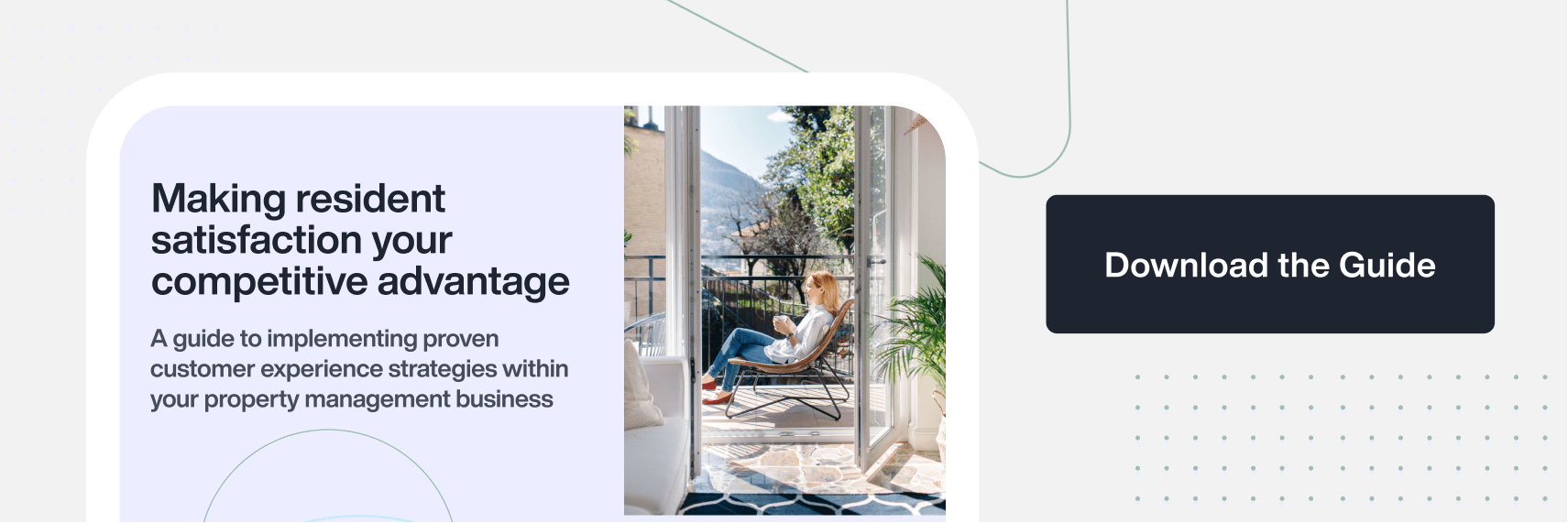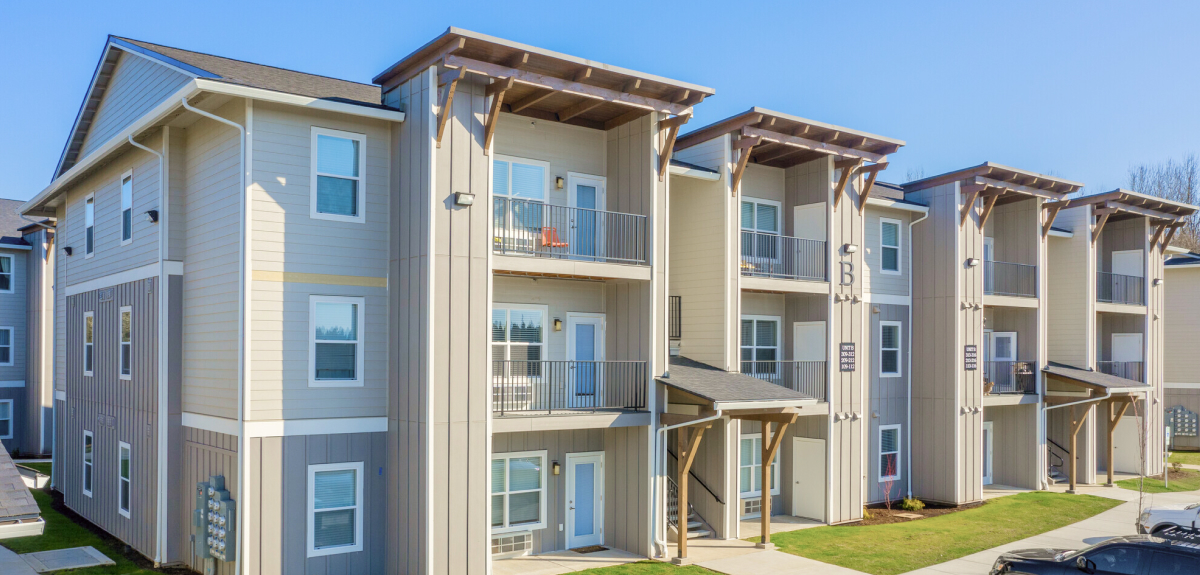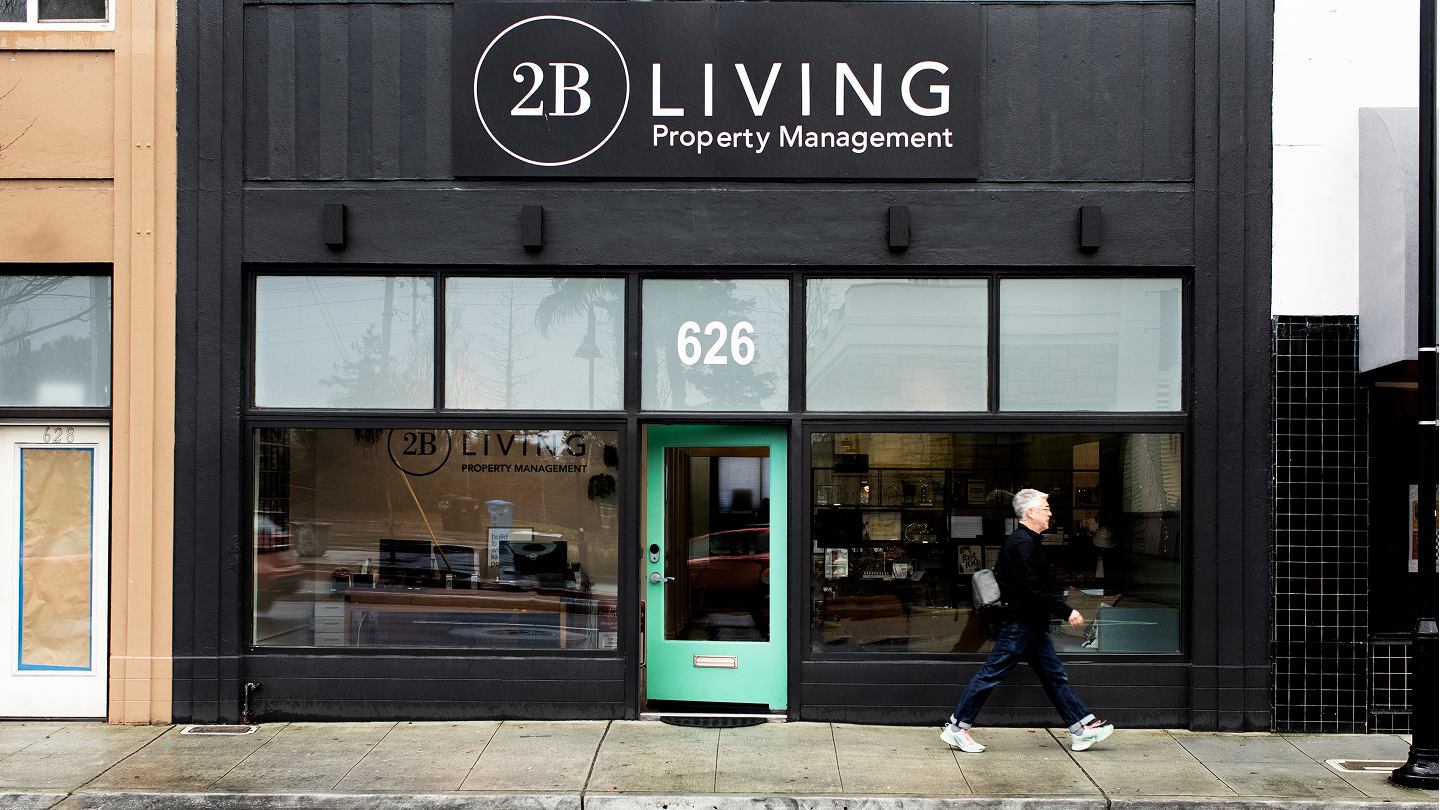Published on September 19th, 2023
By Megan Eales Monroe
Property management dynamics are changing rapidly. As rent growth slows and more supply comes online, 2024 is shaping up to be a renters’ market. That means it’s more important than ever before for property management companies to double-down on resident retention and maintain a competitive edge. Thankfully both can be accomplished with a single solution: Prioritizing the resident experience.
That’s because, as revealed by the 2023 Renter Preferences Report, there are multiple different factors for why renters chose their current units, including location, price, unit size, amenities, and so much more.
However, when it comes to choosing to move or stay put in the coming year, there is a common factor that plays a significant role in residents’ decision-making process: How satisfied they are with their property management.
In this episode of The Top Floor, we take a deeper dive into what exactly resident satisfaction looks like, with data from the 2023 Renter Preferences Report. In addition, we spoke to two customer experience and property management experts to see how property management companies can put the report’s insights into action and boost their resident experience.
Listen Now
Meet Our Guests:

Jay Baer:
Jay Baer is a customer experience and digital marketing pioneer, expert, advisor, researcher, and analyst. He has spent nearly 30 years helping the world’s most iconic brands gain and keep more customers. A 7th-generation entrepreneur, Jay has written six best-selling books, and founded five multi-million dollar companies. He is also an inductee into the halls of fame for professional speaking and word of mouth marketing, the creator of multiple award-winning podcasts, and one of just two people in the world listed as one of the top 30 “Global Gurus” in two different knowledge categories (customer service and internet marketing). He founded the strategy and analysis firm Convince & Convert and is a board member of Experience Dynamic, a full-stack customer experience services collective. His very popular twice-monthly newsletter is at TheBaerFacts.com. Jay loves growing businesses, delivering presentations (in-person or virtual) that audiences love, and plaid suits (meeting planners get to pick which suit he wears). He’s also a licensed tequila sommelier and a certified BBQ judge.

James Erickson:
As Sr. Product Marketing Manager, James has helped bring several of AppFolio’s most important and impactful industry reports to life. These include the State of Affordable Housing Report, AppFolio Property Manager Benchmark Report, and the Renter Preferences Report. Before joining the AppFolio team, James spent nearly 10 years covering emerging markets at Forrester Research and working at several different startups. Outside of work, James enjoys golf, cooking, and all things outdoors.
Episode Transcript
Megan Eales Monroe: Welcome to The Top Floor, the real estate management podcast that’s dedicated to keeping you one step ahead of industry trends with expert advice and actionable insights. I’m your host, Megan Eales Monroe. Together, we’ll dig deep with today’s property management leaders and industry change-makers to help you unlock new possibilities, transform your day-to-day operations, and grow your business. And, no matter the size or type of portfolio you manage, we’ve got you covered here on The Top Floor.
It’s not exactly a secret that resident satisfaction is incredibly important for property management. High resident satisfaction drives greater resident retention and lease renewals. And it even helps attract residents through referrals and positive reviews.
But knowing exactly what residents want, and how to deliver on their expectations, can feel like a mystery. Especially since resident preferences are quite literally changing all the time.
That’s why AppFolio surveyed nearly 1,000 U.S. residents to create the 2023 Resident Preferences Report. The findings help shed light on why residents chose their current units, whether or not they plan to move in the coming year, and what drives their satisfaction with property management.
But perhaps the most critical finding from the report is this: In order for property management companies to succeed, it’s no longer enough to just meet resident expectations. Now, property management companies have to exceed them.
Unfortunately, prioritizing resident satisfaction hasn’t been easy to do. Large-scale economic and real estate market challenges have consistently affected profitability and squeezed operating budgets.
But what if there were ways to not only keep costs under control but also boost resident satisfaction, and along with it, renewals and leases?
In this episode of The Top Floor podcast, we’ll do just that, by highlighting findings from the 2023 AppFolio Property Manager Resident Preferences Report. In addition, we’ll also hear from two industry experts on how property management companies can use these insights as key business drivers.
Before we dive in, let’s get to know a bit about our experts first, starting with Jay Baer.
Jay Baer: Thanks so much, Megan. Great to be here. I am Jay Baer. I’ve spent 30 years helping businesses gain and keep their customers through the intersection of marketing, customer experience and business growth. I’ve now written seven bestselling business books. I was the founder of Convince and Convert, a well-known marketing and CX consulting firm. I’ve done some work with AppFolio and other folks in the industry. Delighted to be with you. This is going to be so much fun.
Megan Eales Monroe: In addition to hearing Jay’s expert insights and advice on all things customer and resident experience, we’re also going to hear from AppFolio’s own James Erickson.
James Erickson: Thanks, Megan. Yeah, I’m excited to be here. My name is James Erickson, and I’m a senior product marketing manager here at AppFolio. I’m basically in charge of a lot of the market research that we do here. We do a lot of surveys of customers and other property managers to understand what’s top of mind and most important to them these days.
Megan Eales Monroe: Over the last several years, James has been key to bringing several AppFolio industry reports to life. Most recently, those reports have included:
- The 2023 State of Affordable Housing report
- The 2023 AppFolio Property Manager Benchmark report
- And, most importantly for today’s conversations, the 2023 AppFolio Property Manager Resident Preferences Report
To help set the stage for today’s conversations, here’s James again to explain why he and the team conducted the resident preferences report in the first place, and why improving the resident experience is the focus of this episode.
James Erickson: We’ve been seeing, at a national level at least, rent growth slowing, vacancies rising, huge number of new units delivered this year, so that’s why 2023 has really become more of a resident’s market than what we’ve seen recently, which gives residents more choices and means property managers are going to have to compete more for residents than they have in the past. In this environment, it’s important to understand resident preferences so that property managers can understand how to improve satisfaction there, attract new residents, and retain the residents they currently have.
And this survey consistently shows how important satisfaction with property managers is to retaining existing residents, and attracting new ones, and gives a lot of clues about how property managers can improve these.
Megan Eales Monroe: While we’ll be providing some key insights and findings today, there’s still so much more to discover in the full report. You can download it now on AppFolio.com, and we’ll also be sure to include a link in the podcast show notes.
Now, let’s dive into how property management companies can improve satisfaction rates by focusing on the resident experience.
As Jay mentioned at the top of the show, he’s spent 30 years helping businesses improve their customer experience and written several best-selling books on the topic, including his latest release, “The Time to Win,” which we’ll dive into a bit more later.
To get us started, we first wanted to ask Jay to help translate the difference between customer experience and resident experience. Specifically, we wanted to know if he sees them as interchangeable concepts. And what exactly is “customer experience,” anyway?
Jay Baer: Absolutely. Yeah. It’s the same thing. Everybody is a customer any time they make a purchasing decision or have to revalidate a purchasing decision they’ve made in the past. So it doesn’t matter if you are a resident or you’re buying chocolate chip cookies or you’re buying a car or you’re buying software, you are always a customer. We just call it customer experience in the industry, it’s just easier to just use that name as opposed to resident experience or member experience, et cetera. Just as a shorthand, we typically say customer experience.
Customer experience is actually overcomplicated in a lot of ways. Maybe we’ll try and fix that today. Customer experience is just this. It’s the difference between what your residents think will happen and what actually happens. That’s it. That’s the experience. It’s the difference between their expectations and their reality. And that difference can be better than they thought or it could be worse than they thought. But that variance from expectations constitutes the customer or resident experience. How it differs from customer service is that customer service starts when the customer experience fails. So you provide customer service when somebody’s like, “Hey, this was supposed to be this way, or this isn’t what I thought, or I expected this other thing.” That’s when then you reactively communicate to a resident or a customer and try and solve that experiential gap.
The reality is most of the organizations that spend the least amount of time, money and effort on customer service are able to do that because they spend the most amount of time, money, effort on customer experience.
Megan Eales Monroe: Although spending more on customer experience directly correlates to spending less on customer service, Jay also makes it clear that not all exceptional resident experiences have come with a high price tag. In fact, as Jay explains, improving some areas of the resident experience might not impact your budget at all.
Jay Baer: When we say “experience,” it doesn’t mean put in a nicer pool or buy more barbecues or have more programming. Yes, some of those may be useful, but it really is about the fact that we’re all coming out of a very difficult period in the world.
And there’s one thing I’ve learned, in my very long career is that when things have been hard, what everybody wants is easy. So it’s not about spending more money on your property, it’s about making your property in every form or fashion as easy to work with and as easy to live in as possible. So just anything that’s a hassle, fix it. Now, might that require some financial participation? Possibly, but it’s I think more of a cultural initiative to just be like, how can we make everything easy, more so than can we spend money on a bunch of new stuff?
Megan Eales Monroe: In addition to making things as easy as possible for residents, it’s important to also understand that residents aren’t just comparing property management experiences against other property management experiences. Instead, they’re comparing their property management experience to every other experience in their life, which is something we also talked about with Dror Poleg on Season 3, episode 7 of The Top Floor.
On that episode, Dror also talked about residents’ expectations are now even being defined by property management-adjacent companies, like Airbnb. In that scenario, they have an incredibly seamless resident experience, even if it’s just for a few days or a week. They reserve their rental online, get the keys in a lockbox when they show up, and now that’s another new resident standard property management companies will be held to.
However, as Jay mentioned before, customer experience is actually overcomplicated in a lot of ways. So playing “follow the leader” when it comes to trying to improve the resident experience is along the same lines of putting in a nicer pool when residents really just want better communication.
Thankfully, property management companies don’t have to guess what will help improve the resident experience. Residents told us in their own words with the 2023 AppFolio Property Manager Resident Preferences Report.
In order to understand how property management companies could begin to improve the resident experience, we first wanted to know: How satisfied are residents with their current property manager.
The majority of residents that we surveyed, 66% to be exact, said that they’re satisfied or very satisfied with their current property manager. However, satisfaction is down from 72% last year, but up from 51% the year before in 2020. So we asked Jay, given his vast customer experience across different industries, including property management: Is he seeing the same ebb and flow with customer satisfaction elsewhere?
Jay Baer: Mostly ebb, not a lot of flow. So there’s a index called the ACSI, the American Customer Service Index, and the ACSI measures customer satisfaction with the totality of the economy. So every industry; property management, automotive banking, consumer goods, restaurants, cable TV, internet providers, all of it, right? The ACSI is the lowest right now that it’s been at any point for the last 18 years. So it is factually accurate to say that people are less satisfied with business now than they have been in a really, really long time. And there’s a lot of reasons for that. But it doesn’t necessarily surprise me to see a dip in resident satisfaction as a category.
But I would say this, yes, 66% satisfaction seems pretty good, but also imagine tomorrow a third of your residents move out. Then you’re like, “Man, that’s not very good.” So, 66% should not be the standard that we’re shooting for. We got to try to do better than that, and I think we can.
Megan Eales Monroe: Jay’s push for the real estate management industry to do better is because he’s seen firsthand just how powerful results can be when the customer experience is improved. And, as James explains, it’s also backed up survey results from the Resident Preferences report.
James Erickson: The research found there is a very strong connection between resident satisfaction and retaining residents, as well as attracting new ones.
So when we asked, what are the main reasons you’re thinking about renewing your lease among satisfied residents? About 60% of them say their satisfaction with their property manager is a factor. And absolutely zero dissatisfied residents say their property manager was a reason they’re renewing.
So slightly different than that. Almost 70% of residents say that the property manager’s reputation on the review site is important to them when evaluating a new rental. And that was really surprising to me.
Megan Eales Monroe: Clearly, property management companies have a direct impact on resident satisfaction. And the experiences they create can be a make or break for residents. In fact, about half of the dissatisfied residents in our survey cited seeking a better property manager as a reason that they’re planning to move to a new rental, compared to only 12% of satisfied residents. Here’s Jay again to explain why property managers play such a significant role in resident attraction and retention.
Jay Baer: It’s very common in most industries that when you are dissatisfied with people, it creates more desire to change that state than if you are dissatisfied with a thing. For example, Yelp did a study a few years ago, which looked at reviews of restaurants, and they found that when people had a five star experience or a one star experience, it was way, way, way more likely that the review mentioned an interaction with a staff member than mentioning the food. And so when we feel like we have been mistreated by a person, or we just wish that that person was better to deal with, that sticks with us and actually creates more of this bur under the saddle effect way more than the water in the pool is always cold or the dryer is always broken, or whatever your kind of physical plant problem is. And so I think there’s a real lesson there for property managers, to understand that your people and how they interact with your residents is literally your most important asset.
Certainly there are ways to ask residents to participate in surveys, et cetera, and all of that is certainly better than not doing it. But I would also use just overall resident engagement as either a proof point or a warning sign in terms of that resident’s overall kind of take on the property. So do you see them? Do you ever talk to them? Do they ever come to any programming they might be doing at the property?
If they’re constantly invisible, that’s maybe not a good sign. I would argue that the residents that are more engaged and active in the property are the ones that are probably more satisfied.
Megan Eales Monroe: In addition to overall resident satisfaction, The 2023 AppFolio Property Manager Resident Preferences Report took a deep dive into specific service areas within property management to better understand how property managers can bring their A-game for each.
The report includes much more information than we’re able to cover in just one episode of The Top Floor. But there were three key areas that stood out most when James dove into the data, which we’ll also highlight today.
James Erickson: Some of the highlights from the research around that include effective communication, effective maintenance — and, specifically, quick resolution of maintenance issues — and also the technology that they offer the residents.
Megan Eales Monroe: First up, let’s talk about technology.
When it comes to satisfaction, we saw an incredibly interesting trend related to age. The youngest residents surveyed were the least satisfied with their property management, and older residents were the most satisfied. What’s the cause of this satisfaction gap? All signs point to access to property management technology.
James Erickson: Younger residents have high expectations when it comes to things like technology, and we see that borne out in the data. They have much more demand for the latest and greatest technologies, and these lower-rent units they’re often living in just don’t always have those technological amenities.
Digital tools was also really important, especially for the Gen Z and millennial residents that took the survey. And some of those tools that were called out specifically were online rent payments, flexible rent solution, security deposit alternatives, and the ability to make online maintenance requests. And I’ll just say again, these are all much more important to the youngest residents.
The research found that about 50% of the residents we surveyed currently pay rent online. And among those that don’t pay rent online, by far, the biggest reason that they don’t is that their property managers simply don’t offer it as an option.
Megan Eales Monroe: So to recap, online payments appear to be a huge driver of satisfaction, especially for younger residents. Yet 66% of those who don’t pay rent online today said it’s simply because they don’t even have the option to from their property management company. For property management teams who are still on the fence about offering online payments over paper check payments, here’s what James has to say.
James Erickson: Number one, it’s just so much easier for property managers to process rent payments online versus paper checks. And you can just imagine how much time you’d save by not processing a thousand paper checks each month. And all the time that saves, that’s time that your staff can use to make a better resident experience. That’s really important to driving resident satisfaction. Another reason is that there’s a ton of research out there showing that online payments increase on-time payments and also drastically reduce late payments in delinquencies.
Megan Eales Monroe: For Jay, this resident satisfaction divide isn’t just about younger residents being more demanding — it goes beyond that. In fact, it’s something he’s encountered with his extensive customer experience research, and he even has a name for it.
Jay Baer: We call that the uncertainty gap. The uncertainty gap is the difference between what you in your business or in your property know about what’s going on, and then what the resident knows about what’s going on. In much of society now, uncertainty gaps have been closed down to nothing.
I am old enough to remember a time when to get a ride you didn’t have an app, you would actually have to call a taxi company. And so, you would get a phone, maybe even a payphone, and you would just dial like 222-222, and then they’d be like, “This is Lou.” And you’d be like, “Okay, I got to get to the airport.” Lou would be like, “Well, he’ll be by to get you.” That was all the information you had. All you knew was that somebody was going to come by to get you, at some point, according to a man named Lou. No idea how long it would take, what it would cost, no information provided.
Now, of course, if you get an Uber, you know everything. You’ve got the headshot, the license plate, you got a blood test. You know to a penny how much it’s going to cost, you can follow the car in an icon. And so, younger Americans who have grown up with this kind of technology are allergic to information vacuums. If they don’t know what’s up, it creates a lot of anxiety, and that anxiety sometimes manifests as dissatisfaction. So there are definitely circumstances, in most properties, where there is or potentially an uncertainty gap and one of the best things you can do as a property manager is to just communicate more.
Here’s my rule of thumb. If it feels like you’re over communicating, you’re probably communicating just right. Because the mistake that people make in business is they think, “Well, we sent them the email.” Well, that doesn’t mean they read it, especially younger customers who don’t read email at all.
Megan Eales Monroe: And that brings us to communication. Which, as mentioned before, was something that stood out to James in the resident preferences survey data. It’s also something Jay has researched extensively as part of his book on customer experience.
Jay Baer: So before I put together this book, The Time to Win, I did the largest research project ever in this country on the relationship between responsiveness and revenue, about how customers today care about time and how they spend it more than ever.
And so in the research we found that two thirds, two in three people, say that speed is now as important as price. Which means if you’re thinking about what to emphasize in your properties, ease of use and speed and responsiveness should float up your list of priorities in a way that perhaps it hasn’t in the past.
And I did a presentation recently for one of the large rental property advertising conglomerates, and they studied all of their customers, similar to the research that y’all do, and the percentage of leasing agents, et cetera, who were not getting back to interested residents in a day was astonishing. It was like half. And I said, “Here’s an idea. If you just respond to emails and phone calls within a couple of hours, you will dramatically increase your occupancy rate.” And that sounds ridiculously simple, but trust me when I tell you it can be that simple.
Here’s why. Today we interpret speed as caring. It’s psychology. If somebody is faster, we take that to mean… whether it’s true or not does not matter. We assume what it means: That they care more about us, our money, our livelihood, our happiness more than the next person. So we studied this in my research and we found that one half, one in two customers, will hire whomever calls them back or emails them back first, regardless of price. Half.
So if you just change your operations to be faster, and it doesn’t mean you’ve got to do a tour instantaneously, it doesn’t mean you’ve got to send out leasing paperwork instantaneously. It just means you need to get back to people and say, “Psyched, that you’re interested, let’s set up a time to have you come in.” It’s just that initial response because that’s what indicates that you care and nobody wants the place they live to not care about them.
Megan Eales Monroe: Lastly, let’s talk about James’ last key survey topic: Maintenance. And it’s fitting after hearing Jay talk about speed. That’s because, as you may remember, he specifically mentioned that quick resolution of maintenance issues really stood out in the data.
James Erickson: Probably the biggest thing I noticed in the research is the time it takes to resolve maintenance issues. Residents that are satisfied with their property management company, they experience maintenance issues being resolved in hours or days typically, but then you look at the dissatisfied residents, and they more often report it taking weeks or even months for maintenance issues to be resolved. I see that as a strong relationship between time to resolve and satisfaction.
We find that single family rentals are often managed by smaller landlords and, since they manage so few units, they often have quicker response times and quicker time to resolve maintenance issues, which I mentioned has a big impact on resident satisfaction.
One thing that property managers that manage larger buildings or a larger number of units can do is look to centralize their operations. That’s a big trend happening in the industry right now, so let me take a minute to define this. Centralization in property management refers to the consolidation of management functions and decision-making processes into a centralized entity or system. The goal of centralization is to increase the efficiency, standardization and cost-effectiveness of overseeing multiple properties or units. For larger property managers in general, centralizing maintenance operations for example is a really good way to more efficiently handle maintenance requests and conduct preventative maintenance.
Megan Eales Monroe: As James mentioned, centralization can be a massive benefit for streamlining operations. By pooling resources at the organization level instead of at the property level, property management companies can do more with less, by having team members focus on very specific areas. This focus can also help improve the resident experience, by helping team members wear one hat, instead of having team members wear multiple different hats throughout the day.
At the end of the day, only your business’ leaders can determine if centralization is right for you, your teams, and your residents.
But either way, whether your team is centralized or not, it’s clear that property management team members are an essential component to resident satisfaction, as Jay explains.
Jay Baer: I would say this, and I’ve tested this with research a number of times, it is essentially impossible to deliver a great resident experience until you have a great employee experience. So if you don’t have enough people or the right people managing your property, you have to ask yourself, why is that true? Is it a financial situation? is it a work-life balance situation? Is it a quality of the workplace situation? If you don’t have the right people, I would focus on that first and say, “Let’s make sure that we are the best place to work in our competitive set.” ‘Cause if you’re that, then you’ll get enough and better people who can then actually impact the resident experience.
It is impossible to be great at residents and their experiences without being great internally first. You can be good at resident experience if you have only a good employee experience, but you can’t be great. And that is true not just in this industry, but in every industry.
Megan Eales Monroe: Over the last several years, property management companies have had to navigate a persistently difficult economic landscape. With so many competing priorities and challenges to address, a 66% overall resident satisfaction rate is nothing to sneeze at.
At the same time, as we’ve discussed in today’s episode, it also shows there’s plenty of room for improvement. Especially when almost half of dissatisfied residents say they’re moving to a new rental to seek better property management.
In a time when operational efficiency is essential, retaining residents will become crucial to ongoing success. And when the competition for residents rises, the resident experience will become your biggest advantage.
We’d like to thank Jay Baer and James Erickson for joining us and sharing their amazing resident experience insights with us today. To learn more about improving the resident experience, visit AppFolio.com for even more helpful articles and guides. And don’t forget to download the full 2023 AppFolio Property Manager Resident Preferences Report.
We’ll see you next month here, on The Top Floor podcast. Thank you for joining us on this episode of The Top Floor, brought to you by AppFolio. If you enjoyed the conversation, let us know by leaving a review wherever you listen to this podcast — we’d love to hear your feedback. Also, make sure your subscribed to The Top Floor podcast to get notified as soon as our next episode goes live. Until then, we’ll continue the conversation around all things real estate and association management on the Industry Insights section of our website: appfolio.com/industry-insights. We’ll see you there.
Download our free guide below for more strategies to enhance your customer experience.









Comments by Megan Eales Monroe
Consistency Is Key: 5 Ways to Help Property Management Teams Work More Effectively and Efficiently
Hi there Ryan! We definitely have solutions that make sense ...
How Will Rent Control Impact Property Management Companies in 2020?
Hi Frank - the Consumer Price Index (CPI) is used as a ...
What is AI, and How is it Transforming the Real Estate Industry?
Hi there, Kim! The price depends on your business' ...
There’s a Better Way to Get Work Done: How to Maximize Team Performance through Experience
Hi Amanda, We'd be happy to provide you with more info! ...